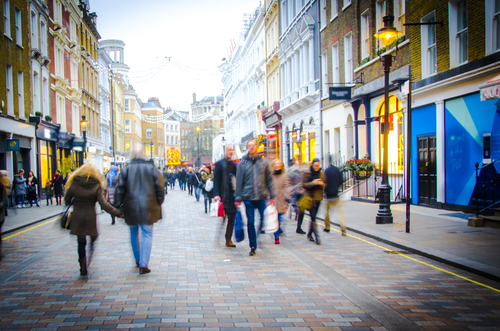Retail groups in the UK have welcomed the Chancellor’s support for independent retailers but concern has been expressed that businesses have been sold out by measures that do not do enough.
In yesterday’s Autumn Statement, Chancellor Jeremy Hunt, revealed a range of measures he said would get the economy back on track. This included extending business rates relief for independent retailers for a further 12 months. And while the business rates standard multiplier, applicable to businesses with a rateable value exceeding £51,000, will see a 6.4 per cent increase, there will be a freeze for the small business multiplier for another year. There will be a two per cent cut in National Insurance from 12 per cent to 10 per cent, effective from January 6, 2024. This tax reduction, amounting to £450 for an employee with an average salary of £35,000, aims to provide financial relief and stimulate economic recovery. However, the National Living Wage also rises.
Some of the measures were welcomed by those in the independent retail channel, although leaders in overall retail expressed concern that not enough was being done to support shops, shoppers and the industry.
In response, Health Stores UK said in a statement to Health Food Business: “We are pleased that the Chancellor has extended business rates relief for a further 12 months. Business rates are a major burden on small retail businesses, and literally can be a make or break for some. So, this measure is sensible and targeted. However, the significant increase in the National Living Wage – up 10 per cent – announced in the Autumn Statement will have unavoidable knock-on effect on costs. While we all want to ensure our staff are fairly compensated, we urge the Government to provide support for small business like those of our members to be able to absorb higher wage costs. In other words, action needs to be taken to drive down costs in other areas. More generally, we are hopeful that the reduction in National Insurance will help stimulate some extra spending on local high streets.”
Also commenting was the British Independent Retailers Association (Bira), which welcomed the news that there will be business rates relief, but warned it was concerned at the increased standard multiplier.
CEO, Andrew Goodacre, expressed both relief and concern for the announcement. He commented: “We are delighted to see the 75 per cent discount retained and the small business multiplier frozen – it is a lifeline to so many independent retailers. However, it was disappointing to see the standard multiplier increased by almost seven per cent. There are many independent retailers who will now be paying more rates next year, as well as paying 10 per cent more on labour.
“We are also concerned by the downgraded growth forecast because retail needs consumers to feel better off and have more confidence in spending on the high street. We are not convinced yesterday’s statement will achieve either growth or consumer confidence.”
Expressing concern for the wider retail industry, Helen Dickinson, Chief Executive of the British Retail Consortium, commented: “Retailers and their customers have been sold out by the Chancellor’s statement, which does not do enough to support shops, shoppers, and an industry that employs over three million people, and many more across its supply chains. As we enter the Christmas period, this Autumn Statement will serve only to renew inflationary pressures that ultimately harm households.
“The Chancellor has poured fuel on the fire spreading across our high streets with a tax hike on shops and other businesses. His decision to increase the business rates standard multiplier will cost retailers hundreds of millions every year. Rather than introduce the meaningful reforms that were promised in the Government’s 2019 manifesto, the Chancellor is now letting the tax spiral out of control, driving up costs just as retailers’ efforts to curb inflation have started to bear fruit. This tax hike comes at a time when retail sales volumes have hit their lowest level in two years. Yet business rates must be paid in full before a business sells a single product or service. This flawed tax continues to wreak havoc on our town and city centres, closing shops and costing jobs. And with the Chancellor introducing the largest increase to National Living Wage on record, retailers are under ever increasing cost pressures, even as the Government withdraws its support.
“The extension to the Retail, Hospitality and Leisure relief and the freezing of the Small Business Multiplier is a gesture of support to high streets and while it may help some smaller businesses, it does nothing for those retailers that provide the lion’s share of employment, investment, and low-cost essentials for customers. The Chancellor has done little to prevent the decline of our town and city centres and his decision will see thousands of stores pushed into the red, jeopardising their commercial viability. This will lead to inevitable consequences for shops and jobs on high streets, right across the country.
“The country needs wholesale reform of our broken business rates system. Retailers pay over £7 billion a year in business rates – over 22 per cent of the total raised by the tax. This must not continue; it is imperative that we see parties commit to reforming the broken business rates system in their manifestos for the next General Election, and to lowering the disproportionate burden that this tax has on the retail industry.”



